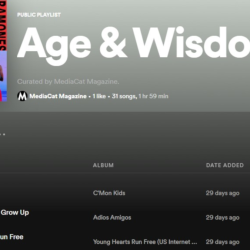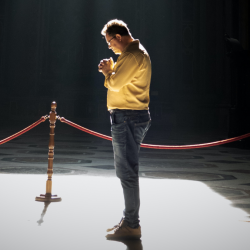Stupider as a whole, no matter the generation. Gen Z, Gen Y, boomers alike. Not a matter of age. And not by choice. We face systematic problems. Digital dystopia, perhaps. Pardon being blunt, but if you expect a silver lining, move over.
To start, wisdom doesn’t come with age, experience does. Wisdom is a broad complex compound of formal education and schooling levels, quality of daily intakes of information, and — of course — living and exchanging personal experiences through life. My argument is that these three pillars are eroding. Bear with me while I try to lay out today’s poor “global state of wisdom”.
Global education levels are decaying
Despite a steady increase in literacy levels, global basic education levels stalled in the past decade. A worrisome trend indicates a rise in the number of children out of school. Global government expenditure on education is at an all-time low given the past 20 years. The decrease affects the global level of trained teachers in primary education: 6 points down since 2013. Teaching is not an attractive career, is it? Check the World Bank datasets. It’s all there.
Education is proven to be the most important investment, either if you are assessing this for yourself or for a nation. To cut down education is to sabotage better futures. This trend leads to, among countless consequences, the loss of historical perspective and the deterioration of collective critical thinking. Even the weakening of the capability of rational compassion, the skill of redirecting one’s empathy to problems that rationally make more sense to solve.
Then, picture unprepared uneducated kids having to deal with, sort and process the insurmountable level of stimuli that the digital media provides, especially social media. Considering both rarely overlap, imagine influencers replacing thinkers. Streamers overtaking specialists. Scientists overshadowed by commentators. Active reasoning for mindless content. Stop imagining and check your feed.
Humanity’s main shared media favors disinformation
Why read a demanding 15-minute text if you can watch numbing 15-second videos? Social media’s core dysfunction is the all-mighty algorithm. Platforms push informational systems that deprive us of nuanced debates. For the past decade, they have removed the thinking and locked us into feeling. Feeling anguish, anger and disgust — mind states that spark reactions, likes and comments more effectively than happiness, reflection and joy. It tingles something primal. We can’t help ourselves when exposed. Our feeds are mobile casinos run by sensationalism. Social media is addictive by design.
In the utopian days of the early internet, people wondered about the marvelous prospects of accessing humanity’s accumulated knowledge without restrictions. 30 years later, Wikipedia hangs by a thread while we ponder how we let a handful of digital behemoths become gatekeepers dictating most of what we watch, listen and read. Furthermore, quality information is being kept behind paywalls. Either by paid journalism or through “pay to go deeper” dark newsletters. In-depth analysis and worthy pieces are out of reach of peoples’ endless vertical feeds.
Social media leads to anger. Anger leads to disinformation. Disinformation leads to ignorance, then to stupidity. This fosters polarization, extremism, opaqueness, inequality and worse. While social media keeps torpefying senses and warping world views, another situation installs.
The old increasingly governs the young
Wisdom also comes from mixing and discussing different generational perspectives, newer and older people thinking together. But have you heard about gerontocracy? It’s when the old population governs others by a majority. Old ruling the new. That’s a thing now.
The number of old leaders and representatives keeps rising and dominating around the world. Not a bad thing per se. However, despite favouring experience, this situation naturally suppresses newer generations and voices to turn speech and activism into public policy. To enact wisdom, most times, is to make space for change.
Don’t expect Gen Z to change the world from the backseat. Younger generations must have representational power. Activism is wisdom in action, but it can only go so far. Gerontocracy often favours conformism. It conserves the status quo for the sake of comfort and order — not evolution. A stretch, perhaps, but old people do not tend to fight current conventions.
Whenever I reflect on the current state of humanity’s wisdom, pessimism takes over me.
Maybe that’s good. Maybe there are clear problems to be solved.
If humanity is indeed stupider, I would love to be proven wrong.
Featured image: Mika Baumeister / Unsplash


































